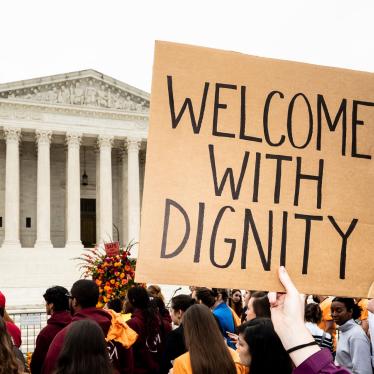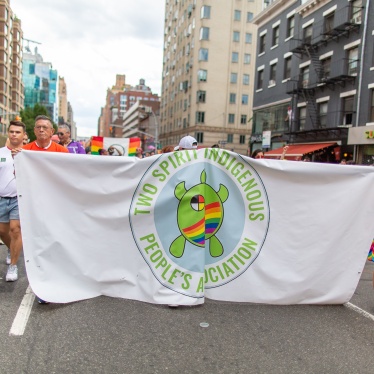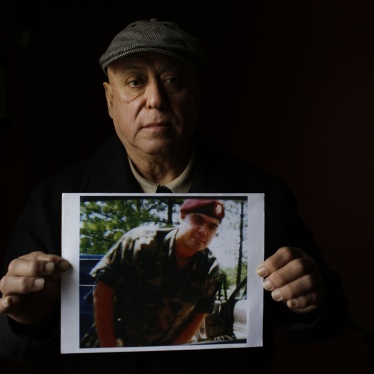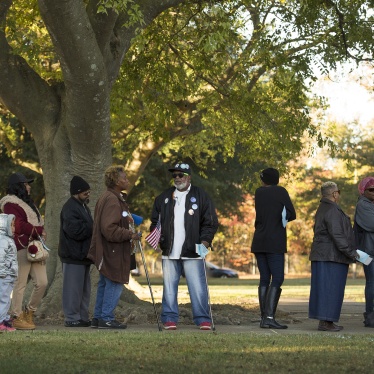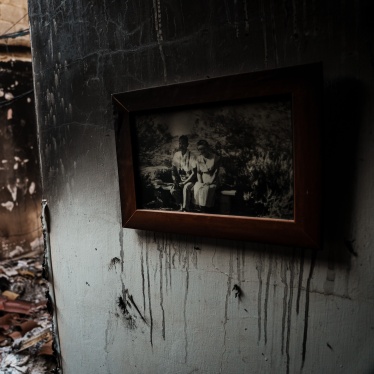November 19, 2012
Marlene H. Dortch
Secretary
Federal Communications Commission
445 12th Street S.W.
Washington, DC 20554
Re: CC Docket No. 96-128 ("Wright Petition") Alternative Rulemaking
Proposal
Dear Secretary Dortch:
I write on behalf of Human Rights Watch to express our appreciation for the November 15, 2012 announcement of the Federal Communication Commission's (FCC) notice of proposed rulemaking on interstate phone call rules and rates. We also urge the FCC to continue to take action on CC Docket No. 96-128 (the "Wright Petition") and end the exorbitant rates now in effect in most states for prison phone calls.
As petitioners and the dozens of parties who have made ex parte submissions in this matter have amply explained, the current system of regulating calls to prisons, which allows states to receive kickbacks from telephone service providers in exchange for prison phone contracts, results in unfairly high phone rates for inmates and their families. In the 42 states that still allow commissions, or kickbacks, telephone rates for phone calls to prisoners currently range from $10.00 to $17.00 for a 15-minute call.
The high phone rates for calls from prisoners charged in most states exploit the vulnerability of inmates and their families, causing them severe harm. Approximately 2.7 million children in the US have at least one parent in prison. In addition to the prison walls themselves, many miles often separate inmates from their children. According to 2005 research by the Urban Institute, women in prisons are housed an average of 160 miles from their children, while men are housed an average of 100 miles from their children. Many inmates cannot count on their family members having the time and financial resources to make frequent visits. Being able to maintain regular phone contact is therefore vital for them to be able to maintain family ties. Prisoners who, if able to obtain a paying job while incarcerated, make as little as $.03 an hour simply cannot afford to help their families pay for expensive phone calls. As the New York Times pointed out in a September 23, 2012 editorial, inmates' families must often choose between communicating with their loved ones and "putting food on the table."
The main justification state officials cite for high phone rates is that providing phone service to inmates entails increased security costs. Yet 11 states that have banned or reduced kickbacks have seen their prison phone rates plummet and have reported no increased security breaches since doing so.
The result of the current exploitative phone system is to effectively cut families off from one another, undermining prisoners' and their relatives' human right to family unity. Inmates and their families pay in the emotional anguish resulting from being cut off from their support systems. Society at large also may pay in the higher rates of recidivism that result from the social isolation of inmates, as prisoners who lack community ties are more likely to reoffend when released from custody.
The Wright Petition has been pending since 2003. It is past time for the FCC to act on the Wright Petition and put an end to the unconscionable prison phone system currently in place.
Thank you for your consideration,
Maria McFarland
Acting Director, US Program
Human Rights Watch
